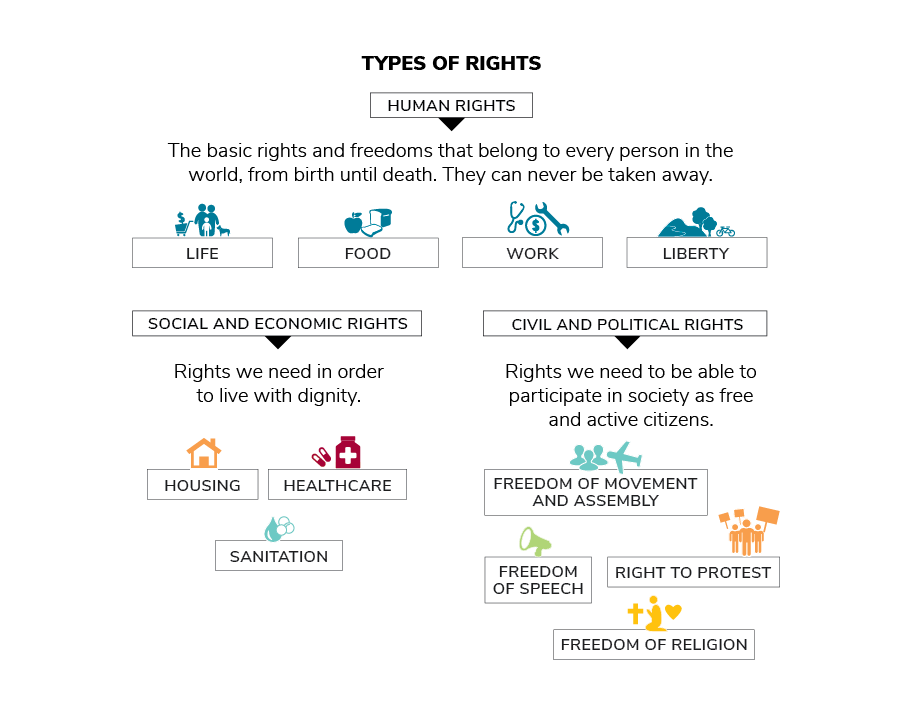Rights
On this fact sheet, find out about where rights in Australia come from, types of rights and how rights are considered when Parliament makes laws.
What will I learn?
- Rights are an important part of Australian democracy.
- Rights come from international law and laws made by parliaments and courts.
- Rights can be grouped into different types such as social, economic, civil and political rights.
Curriculum alignment
Year 5 ACHASSK115
Year 6 ACHASSK147
What are rights?
A right is a moral or legal entitlement to have or be able to do something. Rights are a key principle of Australia’s democratic system of government. How rights are defined in Australia has changed over time and may continue to change in the future.
Examples of rights
Human rights are rights that all people are entitled to, no matter who they are or where they live. They include both social and economic rights, and civil and political rights.
Social and economic rights are things people need to be able to live with dignity. These include the right to:
- housing
- healthcare
- education.
Civil and political rights are things people need to participate in society as free and active citizens. They include the right to:
- vote and stand for elections
- express opinions
- assemble in groups
- practise religion.
Types of rights

Parliamentary Education Office (peo.gov.au)
Description
Social and economic rights are rights we need in order to live with dignity:
- housing
- healthcare
- sanitation
- food
- education.
Civil and political rights are rights we need to be able to participate in society as free and active citizens:
- freedom of movement and assembly
- freedom of speech
- right to protest
- freedom of religion.
Copyright information
This work is licensed under a Creative Commons Attribution-NonCommercial-NoDerivs 3.0 Unported License.
You are free to share – to copy, distribute and transmit the work.
Attribution – you must attribute the work in the manner specified by the author or licensor (but not in any way that suggests that they endorse you or your use of the work).
Non-commercial – you may not use this work for commercial purposes.
No derivative works – you may not alter, transform, or build upon this work.
Waiver – any of the above conditions can be waived if you get permission from the copyright holder.
Sometimes, rights can be restricted if there is a good reason to do so. For example:
- People can have some rights taken away if they have committed a serious crime.
- The right to assemble in groups may be restricted if public health is at risk during a pandemic.
- The right to express opinions can be limited if they are discriminatory.
There are a small number of human rights which cannot be restricted for any reason, for example, freedom from slavery cannot be restricted.
Sources of rights
In Australia, rights come from different sources, including:
- international law
- the Australian Constitution
- common law – law made by courts
- statute law – law made by parliament.
Rights and lawmaking
Any bill – idea for a new law – that is introduced in the Australian Parliament is checked by a committee to see how it would impact on human rights if it became a law.
The Parliamentary Joint Committee on Human Rights checks all bills and laws against the 7 main human rights treaties to which Australia has agreed. The committee reports to the Senate and House of Representatives on what it finds.
